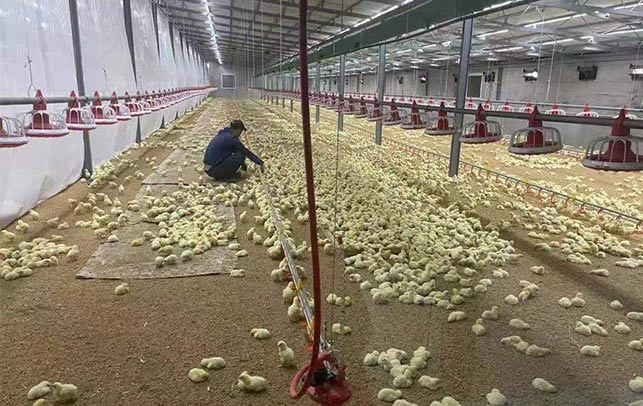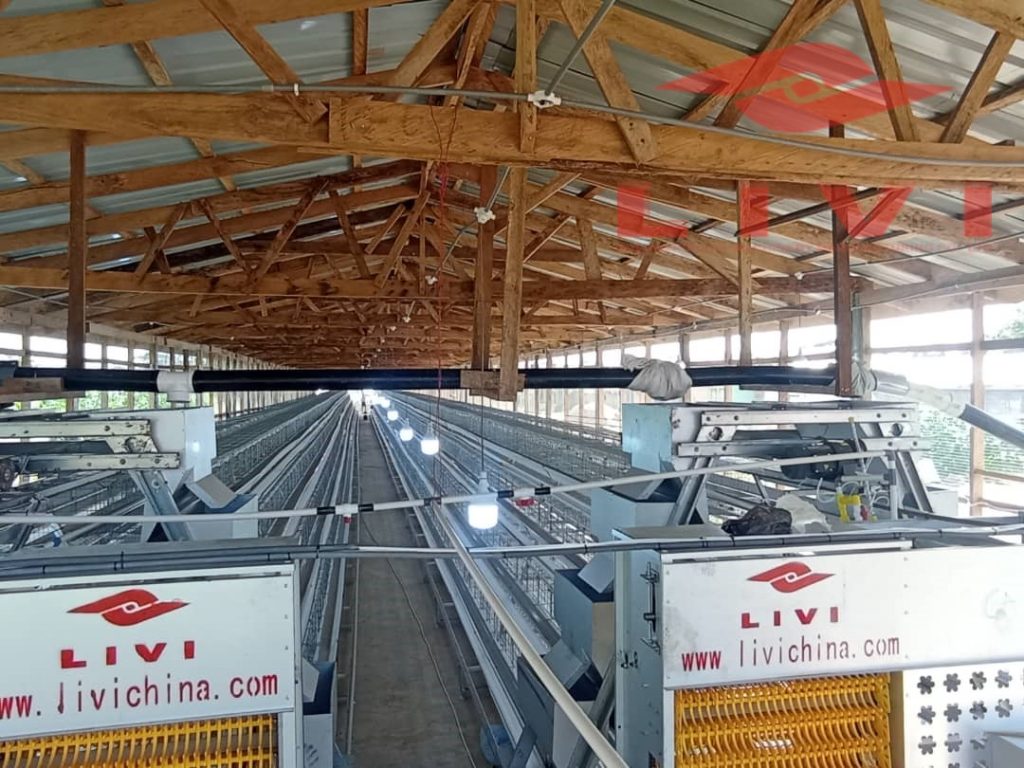How to Raise Broiler Chickens – Broiler Business Plan
Time : 2024-04-29
How to Start Broiler Farming – Broiler Production Business Plan
If you are interested in broiler chicken production, you may be wondering how to start a broiler chicken farming business plan. This article tells you about a broiler chicken farming business plan that may be helpful to you.
Raising broiler chickens can be a very amazing, fun and profitable experience. Whether you do this on a large or small scale, it’s a rewarding process. The term broiler production refers to the raising of poultry breeds or birds with high meat yields. With good management, broiler chicken farming can be a very profitable business in the long run.
Broiler chicken is a special breed of poultry because it is scientifically created to produce more meat in a short period of time (e.g. 6-9 weeks), weighing approximately 6 pounds. The Cornish chicken is one of the primary broiler chickens. But before getting involved in this type of business, there are some requirements that you must learn and understand. What are the key factors in raising broiler chickens? Let’s look at some important factors you should pay attention to.
Preparation of broiler chicken house
One of the important factors in raising broiler chickens is the chicken cages. No matter what design or structure you build for your broiler business, it will have an impact on the overall results of your business in some way. Therefore, when building a chicken house for broiler production, make sure to follow all the regulations and procedures recommended by experts. Discussed below are some guidelines to follow.
The normal distance from one house to another should be around 12 meters.
Install new or maintain equipment available in the house so that heaters, feeders, drinkers and fans are all functioning properly.
The coop should be thoroughly cleaned before bringing in the chicks. Clean ceilings, walkways, walls and equipment. After cleaning, disinfect the building and ensure proper ventilation.
You should use a blowtorch to drive away insects
Heating systems should be inspected and monitored to ensure they are working properly.
A moderate temperature should be maintained in the chicken house.
Avoid challenges with good sanitation, rodent and fly control during housing.

Broiler production equipment
The right equipment in your chicken coop will ensure your broilers run smoothly and are easily managed. Livi poultry farm equipment is one of the best equipment for broiler chicken production. From broiler cages to layer cages and poultry farm equipment, the company specializes in this area to provide the best products that meet customer needs. Their chicken farm equipment is very efficient and effective at a very low cost.
Here are some broiler farm equipment you should consider owning.
To have a heat source, you need an electric or gas brooder. A 250-watt heat lamp is recommended for 50 chicks.
For younger chicks and older chicks as they age, use a small chicken feeder.
When the chicks are young, use a small glass bottle drinker, and as the chicks grow older, use a larger glass bottle drinker.
In this case, the litter or litter for the chicks can be dry, clean sawdust, shavings, straw or shredded paper.
Broiler production environmental conditions
The temperature conditions around broiler chickens are very important for broiler chicken farming and should be strictly controlled. Failure to do so may cause some problems for the broiler chickens. You should check the temperature of your broiler house two days before bringing your chicks to the business. The temperature should be around 350°C for the first week and then slowly decrease at a rate of 2.80°C per week. This mainly depends on the temperature outside. The litter or bedding depth for chickens must be approximately 5 to 6 inches. If you have the opportunity, put some straw in the chicken bed. Beds should be cleaned every two weeks, and if the bed becomes very wet, lime can be used as it absorbs ammonia.
Additionally, the temperature at bird level should be 86° to 90° F. During winter or very cold periods, run your heating for extended periods of time to ensure that your floors remain intact. When chicks are cold, they won’t eat and may starve and go deaf. When the right conditions are observed, broiler chickens will grow quickly with few problems. This further reduces the overall cost of treatment and other challenges.

Feed and water for broiler chickens
The most important factor in raising broiler chickens is chicken feed. When you provide your broilers with proper and quality feed, you will achieve good results. Broiler chickens consume feed and convert it into meat. For farmers to be successful, they should provide their broilers with the right feed. Broiler chickens require a high proportion of protein in their feed to grow well. Vitamins A, B2, and B12, among others, are also needed. To prevent broiler chickens from getting sick, they should also be disinfected.
Broiler chickens consume feed and water day and night, so ensure a 24/7 supply of both in the chicken house. Make sure there is water and feed in the cage. A good quality broiler coop, such as the Livi broiler cages, is ideal and makes it easier to feed your broilers. Make sure you have one of these for efficient operations. In winter, farmers should provide warm water to broilers. When raising chickens, you need to pay attention to the following points:
Feed four times a day
Provide clean, fresh water every time
Water and feed provided should be commensurate with the amount available to the chicks
In summer, broilers need more water
In the first few weeks, give chicks plenty of feed before starting to restrict feeding.
Post-restriction feeding times should be consistent from day to day.
Vaccination for broiler chickens
Broiler chickens require optimal conditions to be safe and free from any disease. But in most cases, this is difficult to achieve. Vaccination of broiler chickens is a reliable way to prevent common diseases that may affect them. Therefore, vaccinating them can protect them from such threats in the long run. The vaccination process should be done correctly to ensure that all birds are vaccinated and protected.
When poultry is vaccinated, all birds are required to drink water within two hours after the vaccine is diluted. Water vaccination is best because all you need to do is get each bird to drink the vaccinated water. The older the chickens are, the greater the dosage of vaccine should be.











